- 조회수 1124
- Date 2024.09.24

Publishing managers carefully examine and discover various content and stories from around the world, refining them to make them more accessible and appealing to a wider audience. They have a keen eye for identifying stories that are gems in their own right, and they work with passion to create books that touch our hearts. Sometimes a book impacts an individual; sometimes it resonates with the world. Alumnus Ian Youn is a star editor in the publishing industry, renowned for being the editor behind many of the best-selling books we come across in bookstores.
From Literary Youth to Publishing Editor
There are stereotypes that the public holds about people who work in publishing. One of these might be the assumption that their love for books led them to dream of becoming a novelist or poet at some point, especially for someone like Youn, who majored in both Korean and English literature in college.
“My major was English Literature, and I double-majored in Korean Literature. I've always loved working with words. I love to read, and I'm interested in writing, so I took some creative writing classes, including Professor Chong Hyon-jong's poetry writing class and Professor Han Kang's novel writing class. I used to write rough drafts as well. I also remember really enjoying the critique class at Yonsei. In addition, I worked as a reporter for Yonsei Chunchu (Yonsei’s university press) for two years, spending my last semester there on the editorial desk.”
Conventionally, individuals who pursue writing as a career often join the media sector, such as newspapers, broadcasters, or advertising companies, for the sake of future stability. Given Youn's background in the university press, one might assume he was interested in a career in journalism.
“I have a lot of journalist friends because of my time at Yonsei Chunchu. When choosing a career path, I certainly considered that field. However, my final interviews with a newspaper and a publishing house coincided. After some serious thought, I made the intuitive decision that publishing was a better fit for me. Looking back, I realize it would have been tough for me to be a journalist. As a journalist, you're constantly in the field, hunting for the truth, which wasn’t ideal for someone like me, who much preferred the writing aspect. Even during my time at Yonsei Chunchu, I enjoyed writing articles more than doing fieldwork.”
During his time at Yonsei Chunchu, Youn would stay up all night every Friday to finish his articles before the deadline. Despite the rigorous deadlines and heavy commitments, working at the university press holds a special place in Youn's memories of his time on campus. The friendships formed during those years continue to be a strong pillar of support for Youn today. It was through that experience that he chose the life of an editor, realized his own tendencies, gained a different perspective on the world, and continues to excel as a discerning editor.
World of Publishing & Editing: Fun Yet Competitive
It was at an educational publishing house that Youn began his career as an editor. However, disappointed by the conservative atmosphere, which he had expected to be more free and creative, he moved to Woongjin Knowledge House, a commercial publishing company that produces books in various fields, within three months. Here, he started his work in the literary department, managing fiction, essays, and more, eventually rising to the position of executive editor. In this role, he oversaw the entire process, from book proposals to author acquisition to publication. While the responsibility of handling an entire book was immense, he thoroughly enjoyed the process. What he loved most was expressing the core message that runs throughout a book. To effectively convey the appeal and emotion of the content to readers in a brief but impactful way, it was crucial to have a thorough understanding of the book's direction, core message, and its most attractive points—something he excelled at as an executive editor.
“Working at a publishing house was a joy. In a way, from a broader perspective, it felt like an extension of the work I was doing at Yonsei Chunchu. So, from the moment I started working, I knew it was the right fit for me. My favorite part of the pre-publication process is writing the text for the book cover. It's about organizing the content that will go on the cover: the title, the cover copy, the author bio, etc. Coming up with a title is the hardest and most important part because you're coordinating with the author, your boss, and the marketer. The entire process is the editor’s responsibility.”
This process also involves making the book 'sell.' What makes a book sell is subjective and often a hotly debated topic, but it was this very ambiguity that fascinated Youn. While the path of a publishing editor has its challenges, Youn found immense satisfaction in his role in the creation of a book, and that passion is what has kept him going for so long.
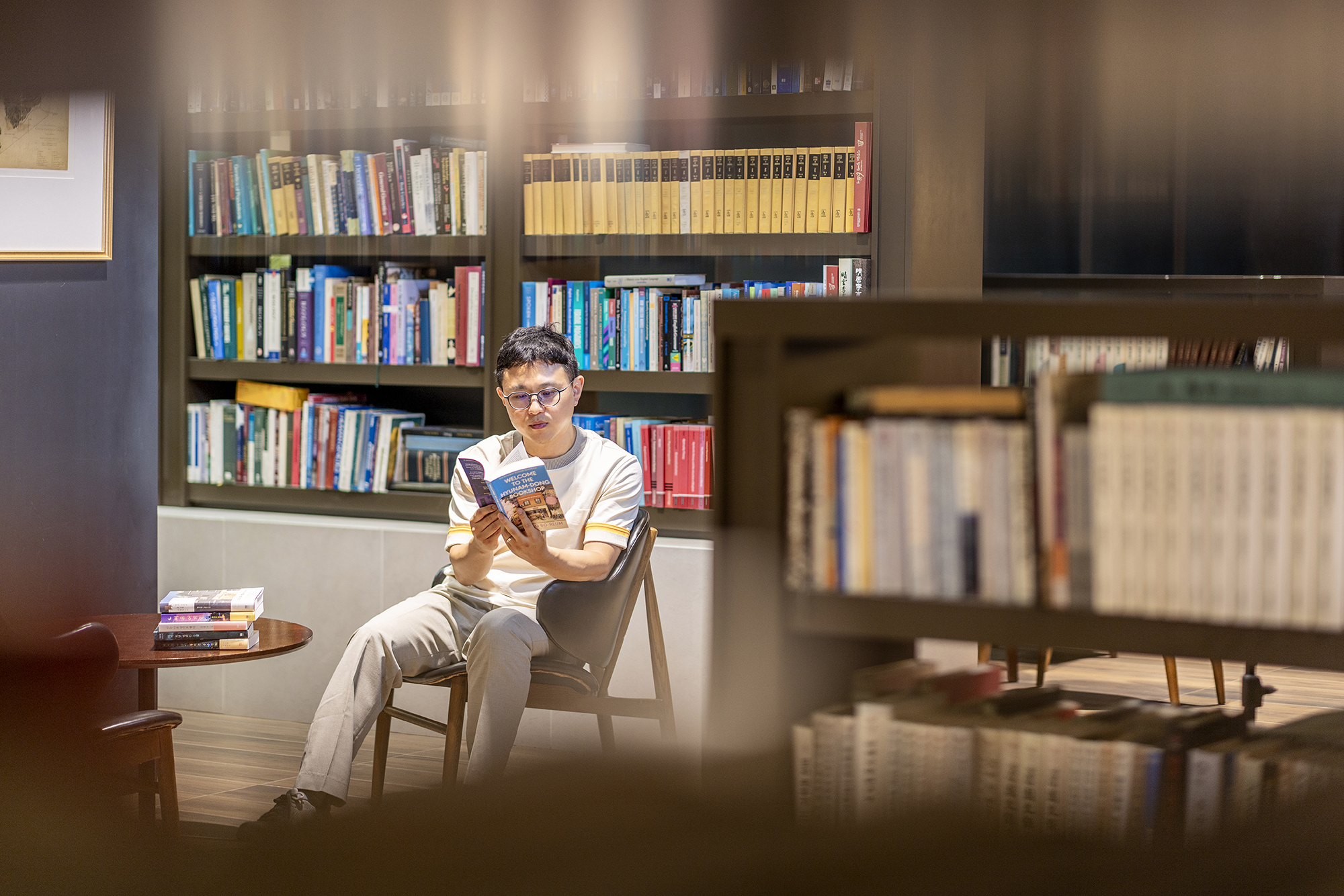
Starting a One-Person Publishing House for Books With a Different Perspective and Experimental Challenges
.After six years at Woongjin, Youn moved to Dasan Books, where he established himself as a bestselling editor across various fields, including literature, humanities, and self-improvement. It was in the field of humanities that his talents and initiatives truly stood out.
"Literature, humanities, business and management, personal development, children's education, history—there wasn’t an area I hadn't explored during my time at various publishing houses. Most of my bestselling books were published while I was the head of the humanities department at Dasan Books. Some of the memorable works include How Philosophy Becomes a Weapon of Life and The Usefulness of History, both of which received great market response by presenting complex ideas in a simple and accessible way. These books allow readers to find answers to real-world problems through the lens of the humanities."
These books aren't traditional humanities texts but rather works that offer practical solutions to modern-day challenges, using age-old insights that can be applied to everyday life. While they may have a self-help element, they are distinct in that they don’t simply recount personal success stories. Instead, they draw from the humanities to provide useful life lessons, which distinguishes them from the one-dimensional teachings of typical self-help books. This unique approach resonated strongly with the public by offering a fresh perspective.
After five years at Dasan Books, Youn took the bold step of starting his own publishing company, CLAYHOUSE, in 2021. Though publishing requires less capital than other industries since it primarily relies on intellectual resources, launching his own company was still a courageous move for an established editor like Youn.
"I learned a lot from my seniors at different publishers, and that experience has been invaluable to me. Working within the structure and support of a large organization is great, but I wanted more freedom to experiment and try new things based on what I had learned."
Youn wanted to write his own books, publish highly commercial works, and experiment with different publishing and marketing strategies, including e-books. Most importantly, he wanted the freedom to make quick decisions, from idea to publication. Though CLAYHOUSE is only four years old, it has already made a name for itself with a diverse catalog of over 20 books, earning the love and attention of readers.
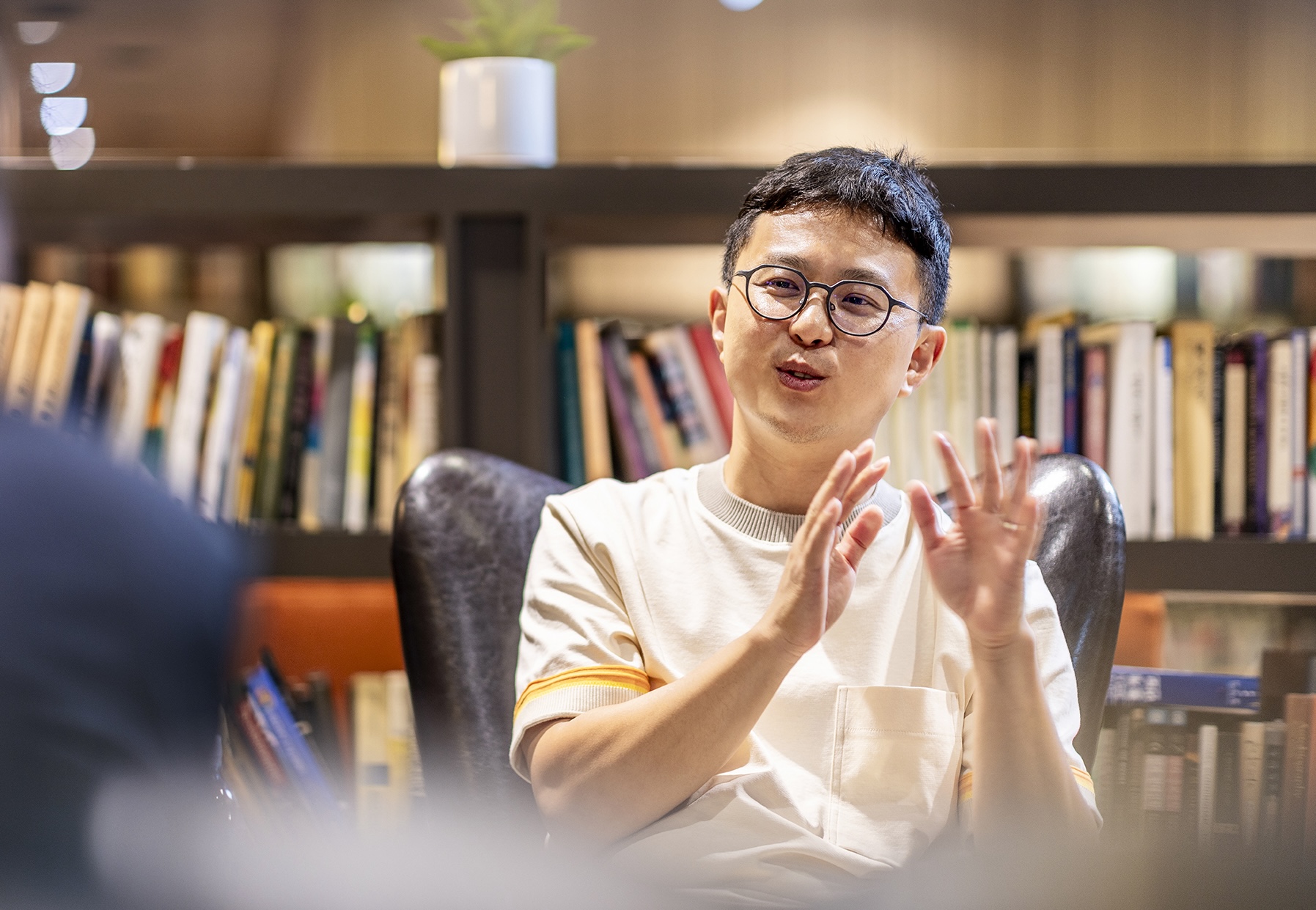
Courage to Challenge When Plans Differ from Reality
The first book Youn published after founding CLAYHOUSE was I Have the Bravest Face When I Run Away, written by Youn himself. The book’s title cleverly reframes the concept of running away, often seen as an act of cowardice. In Korean society, it's common to see people burn themselves out, lacking the courage to stop despite knowing they’re on the wrong path. Witnessing this, Youn wanted to create a book that offers life skills and addresses people’s concerns through philosophical and literary content. Although the book didn’t sell as well as he had hoped, it holds deep personal significance for him as it reflects his own perspective on life.
"I tend to switch gears quickly when I realize something isn’t what I want. So this was an experimental book with a message for people who knowingly pursue the wrong path—that there are other options. Although it didn’t sell well in Korea, it was selected as an excellent publication in 2021, and has since been published in Japan, China, and Taiwan, making it a meaningful accomplishment."
Since the first book and three others that followed in the early days were humanities books, Youn initially positioned CLAYHOUSE as a humanities-focused publisher. This made sense, as humanities was where he had the most expertise.
"At first, I envisioned CLAYHOUSE as a publisher specializing in humanities books, which was my strength during my time at Dasan Books. I initially thought of focusing on humanities titles with a self-improvement angle, but things don’t always go as planned, right? (Laughs) Just after starting the company, the market changed, and the demand for such books faded. I was a bit lost for a while. Then, about six months into the business, a best-selling novel emerged, and with it, an opportunity. That changed the nature of the company. It was a turning point that came after publishing three humanities books."
Youn's founding of CLAYHOUSE was more of a challenge than running away. Even when reality didn’t align with his expectations, he courageously continued to publish books, ultimately seizing his opportunity.
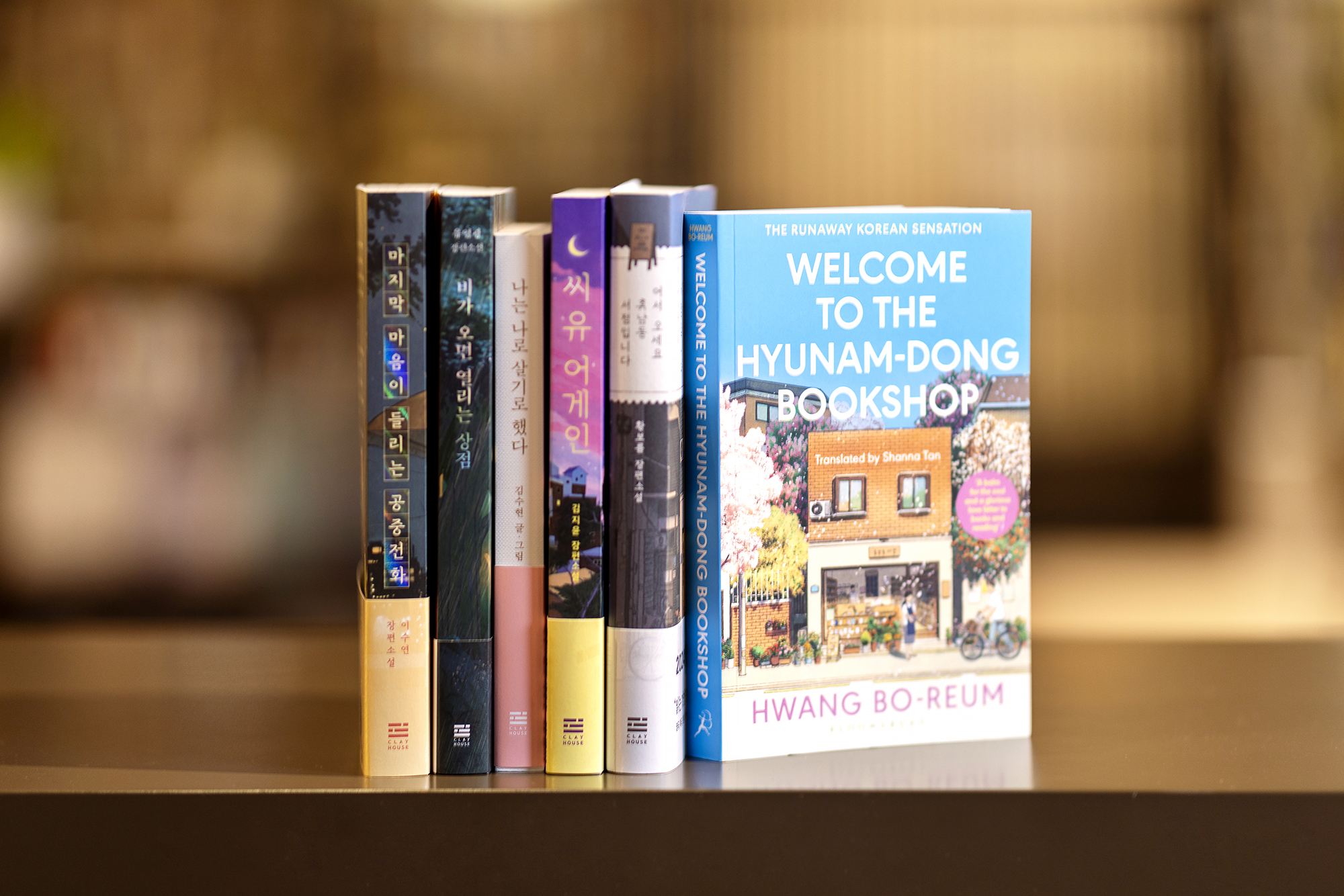
A Warm Story That Captures the Times, Becoming a Bestseller
Youn's big break came with his fourth novel, the enduring bestseller Welcome to the Hyunam-dong Bookshop. Originally serialized on 'Kakao Brunch' in 2019, the novel gained widespread popularity after being introduced through 'Millie's Library' in 2021. Word of mouth turned it into a must-have book. At the time, Youn was eager to experiment with marketing strategies for good content, so he embraced the opportunity to publish the novel in print. As he anticipated, the physical copies became bestsellers as well. The book explores how ordinary people in everyday spaces overcome their wounds and move forward. The bookstore in the novel serves as a place of comfort, and Youn published the book for readers who wished they could hold such a place in their hands and think, ‘I wish there was a bookstore like this.’
"At the time, I had no plans to publish a novel. But when Millie's Library asked me to review the work for potential paperback publication, I was eager to publish it. We worked incredibly hard on the marketing, trying every method possible. As soon as it was published, the market response was immediate. The first edition sold out in no time. The book was released right before the Korean New Year—a period when printers are busy with textbooks and journals, so novels are usually deprioritized. I was frantically on the phone, trying to get the second edition printed. (Laughs) At first, I just felt relieved. My previous three humanities books hadn't sold as well as I had hoped, and when things don’t go as planned, you start doubting yourself. The excitement and joy came later. That experience taught me the key to this business is consistency—you can’t be swayed by momentary successes or failures."
The novel may have gone viral as an e-book, but what drew Youn to it as an editor, and why did it resonate so strongly with the public? Beyond the strength of the story, Youn believes it was relevant to the time in which it was published, especially during the pandemic. Most importantly, he thinks the book addressed an emotional need that many people had during that time.
"During the pandemic, people couldn’t meet each other. There may have been a desire for a sense of belonging. The book tells stories about different people, their concerns, and their lives, all centered around a neighborhood bookstore. It may have indirectly resolved the frustrations and desires readers were feeling at the time. The book allowed readers to experience emotions they had been lacking during the pandemic. It wasn’t something I or the author intended, but I think the right book came out at the right time."
In 2023, Youn published The Rainbow Goblin Store, which also became a bestseller. While traditional novels often center on a single protagonist, stories that revolve around multiple characters and shared spaces seem more in tune with modern times. Though Youn modestly claims he just "followed the flow of the times," the real reason his books resonate so well with readers is his deep humanistic insight, which keeps him in touch with the needs and desires of the era.
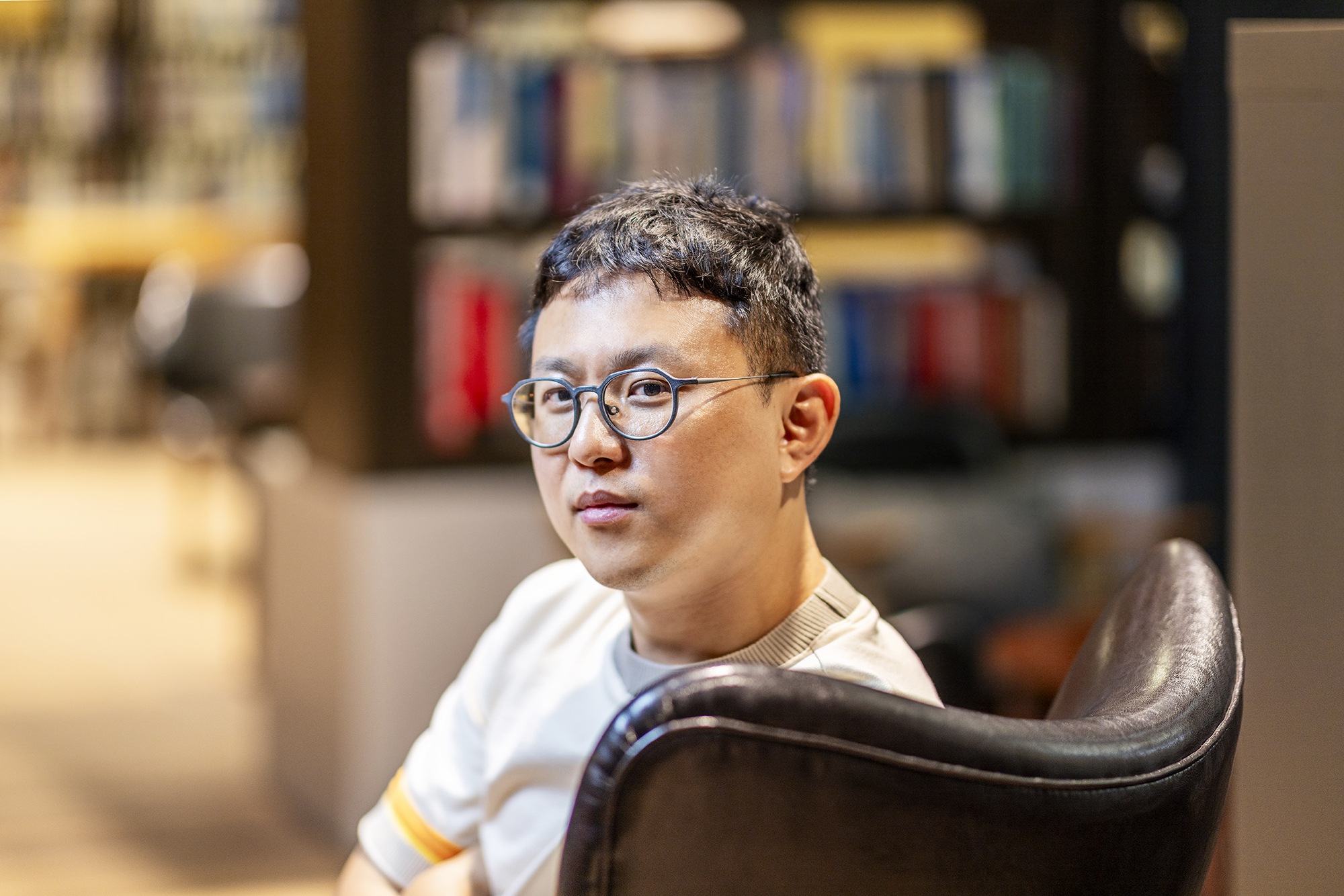
A Best-Selling Book Starts With the Reader's Perspective.
Youn emphasizes that publishing is often driven by an individual’s insight, meaning that a person with vision leads the way in identifying opportunities and guiding others. For Youn, the role of an editor is not just to work behind the scenes but to be proactive, have a clear sense of the times, and recognize content with potential. He believes editors must leave their personal bubbles and focus on creating "useful books" for the world.
"Editors often have their own world and strong opinions about what they like. Many aspiring editors enter the field with this mindset. I was no exception. But the moment I broke out of that shell, business opportunities opened up, and I started seeing results. It was then that I realized I wanted to start my own business. I was a literary boy, a bookworm, with a clear idea of what I thought was good or not. But if I only stick to what I like, it won't work. Yes, I can read whatever I want as a reader, but publishing is about selling books. A business only survives if the books sell. I remember a publishing head once saying, ‘Readers are the only geniuses. Readers are right.’ Editors should align their decisions with readers' interests. If editors judge books only by their personal standards, they risk resenting the world and looking down on readers. This attitude is one that we as editors must caution against.”
Since founding CLAYHOUSE, Youn has maintained this philosophy, which explains the consistently high sales of the books he publishes. He aims to see the world and content through the eyes of readers, not from an ivory tower. As an editor, he focuses on what will keep readers engaged, approaching the industry with a business mindset rather than purely as a book enthusiast. This perspective has allowed him to grow his one-man publishing house into a "comprehensive publishing company" that offers a variety of genres, including novels, essays, humanities, self-development, and economics.
He places considerable emphasis on marketing, more so than many other publishers, to find ways to connect with readers. His goal is to make content both “readable” and “relatable.” Aggressive marketing generates initial interest, and good content sustains it, creating books that are hard to ignore.
When asked about the impact of influencers on book sales, Youn acknowledges the growing trend where celebrity endorsements can turn a book into a bestseller. However, he refrains from labeling it as either good or bad for the industry.
"Recently, a book mentioned by a celebrity became a bestseller. It’s a difficult book, but the influencer helped it reach a broader audience. It’s not just light books becoming bestsellers anymore—heavy, serious ones are doing well too. And not all influencers are paid to recommend books. Sincere recommendations seem to resonate more. After all, readers can sense when a recommendation comes from the heart."
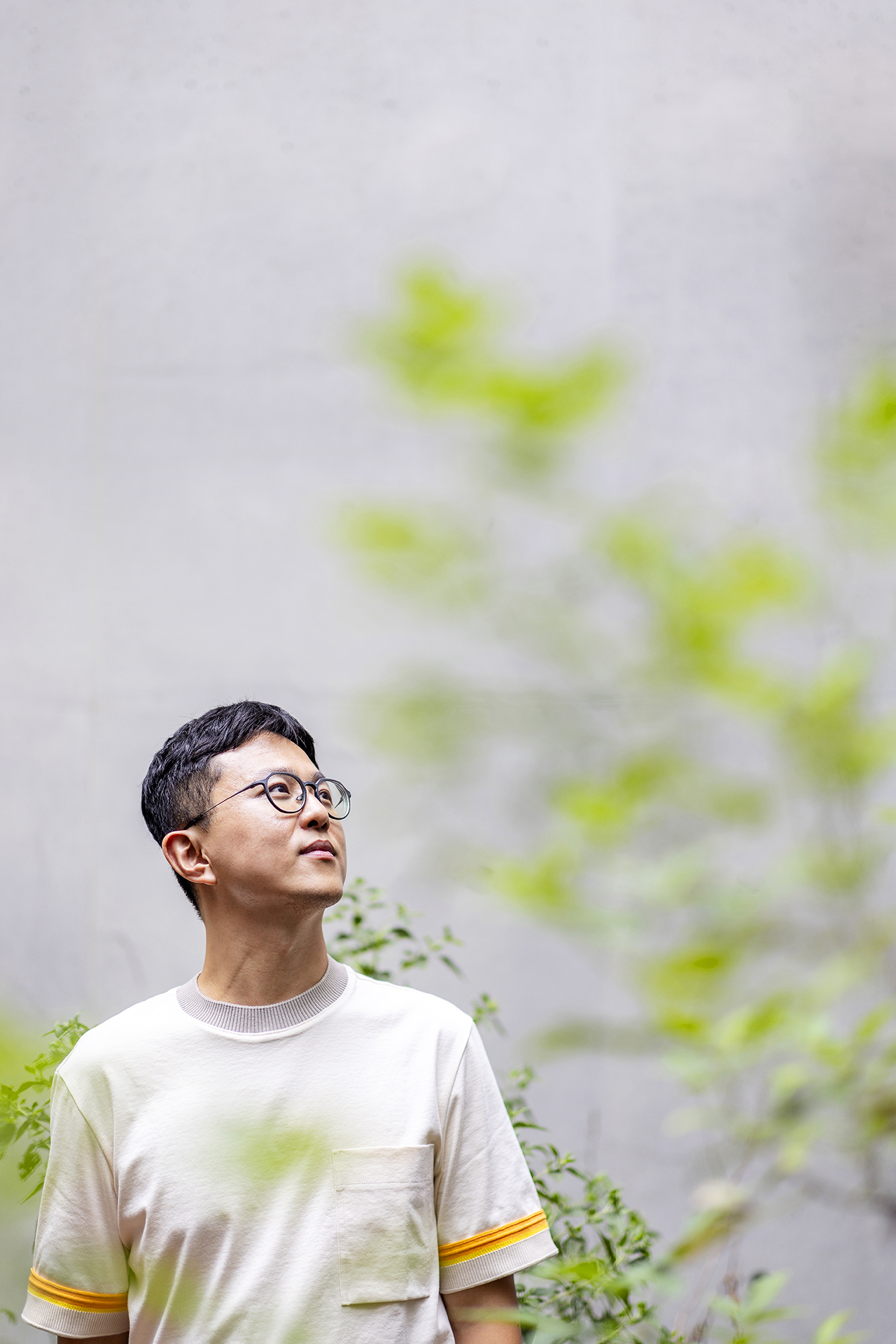
The Center of Korean Publishing's Expansion Into Overseas Markets
Youn has taken CLAYHOUSE beyond Korea, expanding into overseas markets as global interest in K-content continues to grow. Korean publishers are increasingly exploring international opportunities, and CLAYHOUSE stands out as a leader in this field. For example, Welcome to the Hyunam-dong Bookshop gained such popularity in the global market that Bloomsbury Publishing featured it as a main title at their booth during the London Book Fair. Meanwhile, The Rainbow Goblin Store, which began as a crowdfunded project on Tumblbug, had already been exported to six countries before its publication.
"There’s a lot of interest in Korean books these days. Welcome to the Hyunam-dong Bookshop has become a bestseller in more than 8 countries, including the U.S., U.K., Singapore, Australia, Japan, Brazil, Malaysia, and Turkey. The Rainbow Goblin Store also sold rights to six countries, despite being written by a rookie author—something unprecedented. Particularly, Welcome to the Hyunam-dong Bookshop tells a story about books, a bookstore, and people who love books. People who love books naturally gravitate towards stories about books. There’s a large category for such novels overseas, but not so much in Korean literature. This book fits perfectly into that category, and that might be why it gained so much attention both abroad and at home."
As CLAYHOUSE continues to demonstrate the potential of Korean book content internationally, it is expected to open doors for other Korean publishers, creating more opportunities for global recognition. Youn remains committed to international expansion, actively working to ensure Korean content reaches and resonates with readers worldwide.
Looking ahead, Youn plans to further diversify CLAYHOUSE, which has grown from a one-person operation to a five-person team. To capture the interest of the MZ generation—a demographic with relatively low reading rates—he is eager to recruit younger employees who can better understand and cater to their needs. In line with the fast-paced, ever-evolving publishing market, Youn envisions CLAYHOUSE evolving into a flexible, dynamic entity that expands freely, much like clay.
For Youn, work and life are inseparable. Having spent his career as an editor constantly attuned to the stories around him, he believes everyone has their own story worth telling. He remains committed to publishing books that readers will want to pick up—books with meaningful, interesting content that touch hearts, offer useful knowledge, and present fun yet inspiring narratives.